It’s no secret that Guilford tends to support Palestine, though there is no official position on the conflict.
“As an institution, I do not think we have a set stance on the conflict,” said Faris El-Ali ’14, student success mentor and assistant coordinator of the First-Year Experience, community director, and Students for Justice in Palestine member, in an email interview. “We have many different people with different values, political views and communal ties.”
While the opinion that Guilford is anti-Semitic is far from true, students with opinions outside the perceived norm still feel unwelcome.
“We don’t have a place for free expression of differing opinions,” said Frank Massey, Friends Center and IFP gifts discernment coordinator. “There is a sense that mostly one side has been presented on campus.”
On Tuesday, Feb. 3, a presentation by Steven Salaita stirred things up on campus once again, not because of Salaita’s stance on Israel and Palestine, but rather because several students felt blindsided by Salaita’s coming.
Salaita was brought partly as a response to Edwin Black, who came to Guilford this past semester. Salaita was sponsored by SJP, the Friends Center and the women’s, gender and sexuality studies, English and peace and conflict studies departments.
“Those who organized it could have met with the Jewish students and asked what we thought could have been done to foster an open dialogue,” said senior Josh Weil, Hillel member. “Maybe we would have actually felt like we were a part of the conversation.”
Last semester, students made progress toward an open dialogue on campus when Students for Justice in Palestine joined Hillel for Shabbat and both groups met for pizza at Campbell house.
“Even in the midst of the awful stuff last fall … we had those conversations,” said Max Carter, Friends Center director and adjunct professor of religious studies and SJP advisor. “We had that tea and talk and chatted with Jewish and Palestinian students. We can still do that.”
Last semester, members of SJP and Hillel went to the Open Hillel conference together.
“(A group) from SJP, as well as … Hillel, attended the Open Hillel conference at Harvard University,” said junior Walid Mosarsaa, SJP president. “(Many) members of our community … have all been very supportive of peaceful dialogue between Hillel and Students for Justice in Palestine.”
On all sides, there are students who want communicate.
“We’re both hurting,” said sophomore Mara Stern, Hillel member. “Let’s try to deal with those feelings together rather than letting them tear us apart.”
To do that, Guilford needs to be open to all sides of the conflict.
“We need to keep bringing speakers onto campus that have different points of view and attempt a balance,” said Sari Goldberg ’14.
Whether it’s Salaita, Black or another speaker altogether, those who oppose the views being presented should be open to listening.
“We have been willing to take on these conversations,” said Jim Hood, professor of English. “I’ve been very uncomfortable numbers of times here at Guilford, and I’ve just come to understand that (we) need to struggle with these issues instead of not letting Salaita speak.”
With an openness to different ideas, Guilford’s reputation as an anti-Semitic school won’t be the dominant narrative, as it shouldn’t.
“(Salaita) started off by having to say, ‘I’m not an anti-Semite,’” said Jeremy Rinker, visiting assistant professor and chair of peace & conflict studies. “That kind of set the tone … and raised the tension.”
To move forward, everyone needs to understand that not every Palestinian and Jew has the same opinion as other Palestinians and Jews.
“There’s a world of difference between being Jewish and being Zionist,” said sophomore Niall Dongan. “People make assumptions that if someone is very Jewish and very involved in the Jewish community they must support Israel for the same reasons that Zionists might.”
That understanding is vital to open discourse.
“The students still want to work together, both Palestinian and Jewish students,” said Massey. “They want to create an environment here where they can move forward, have programs here to increase the dialogue.”







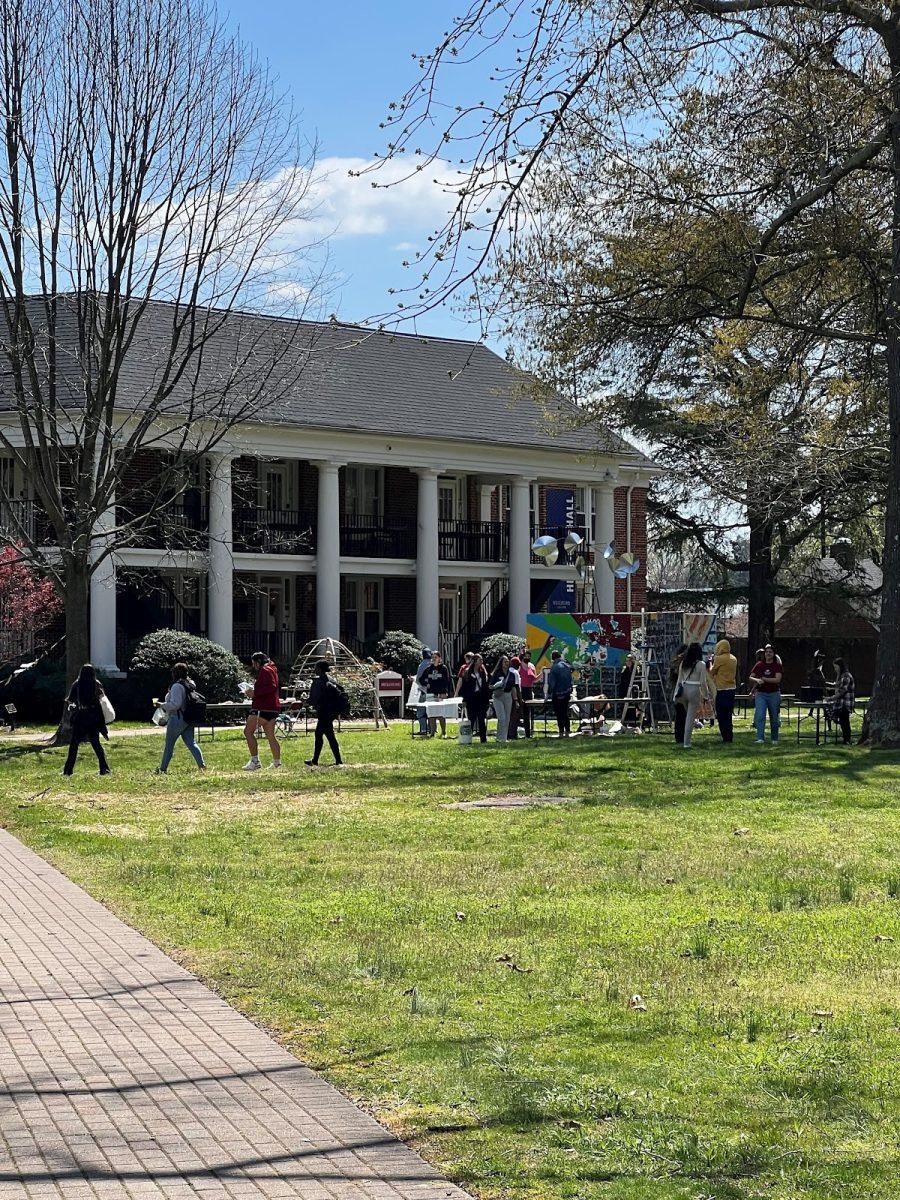
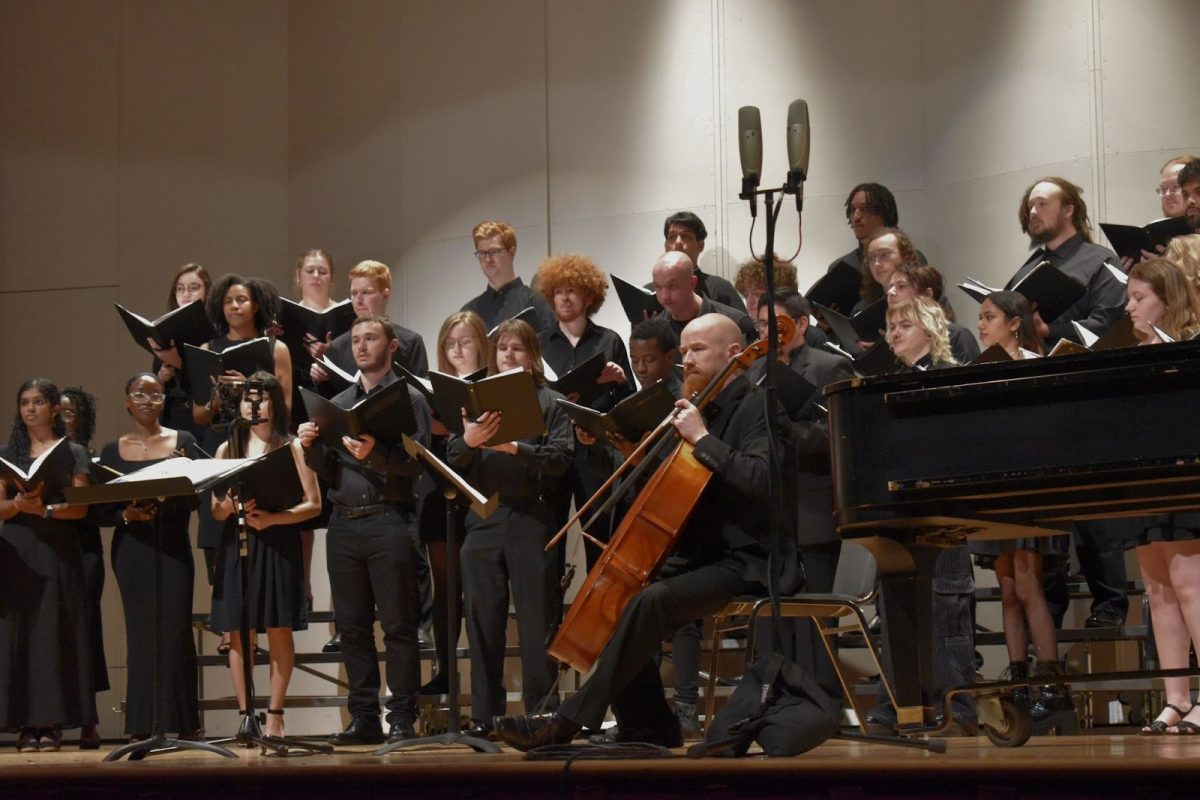
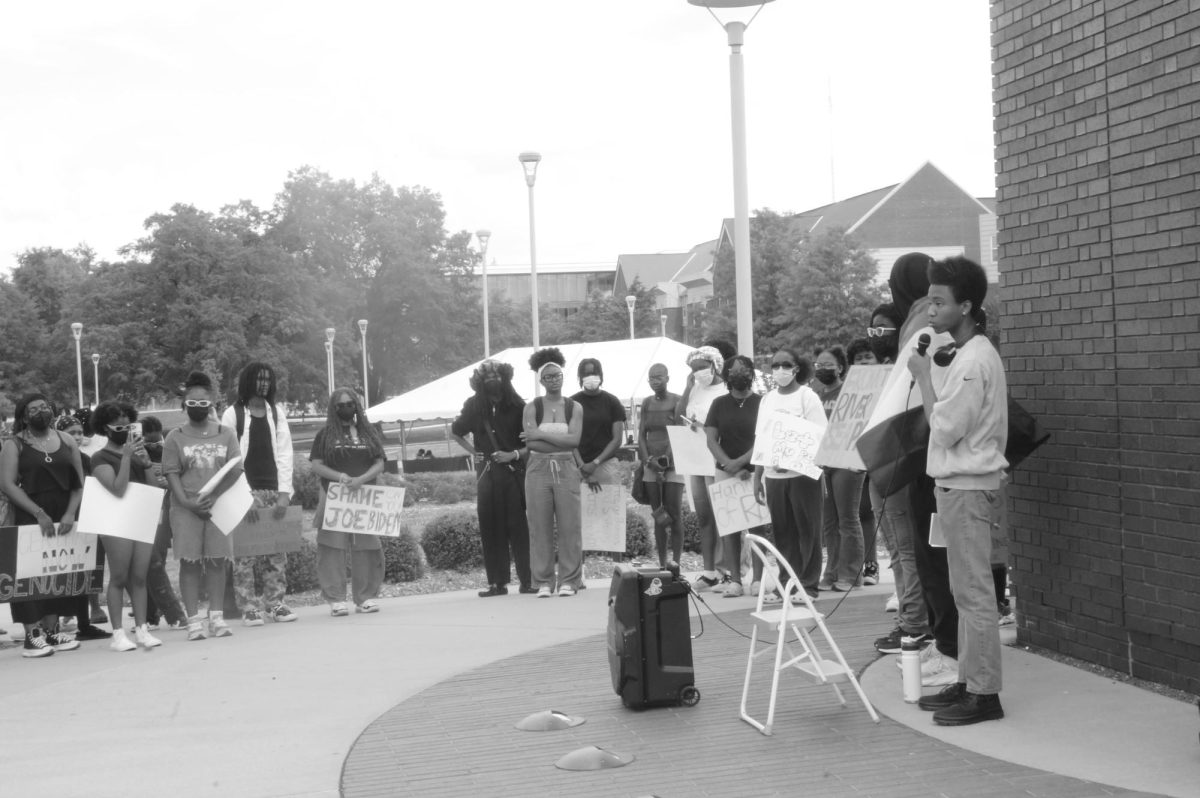
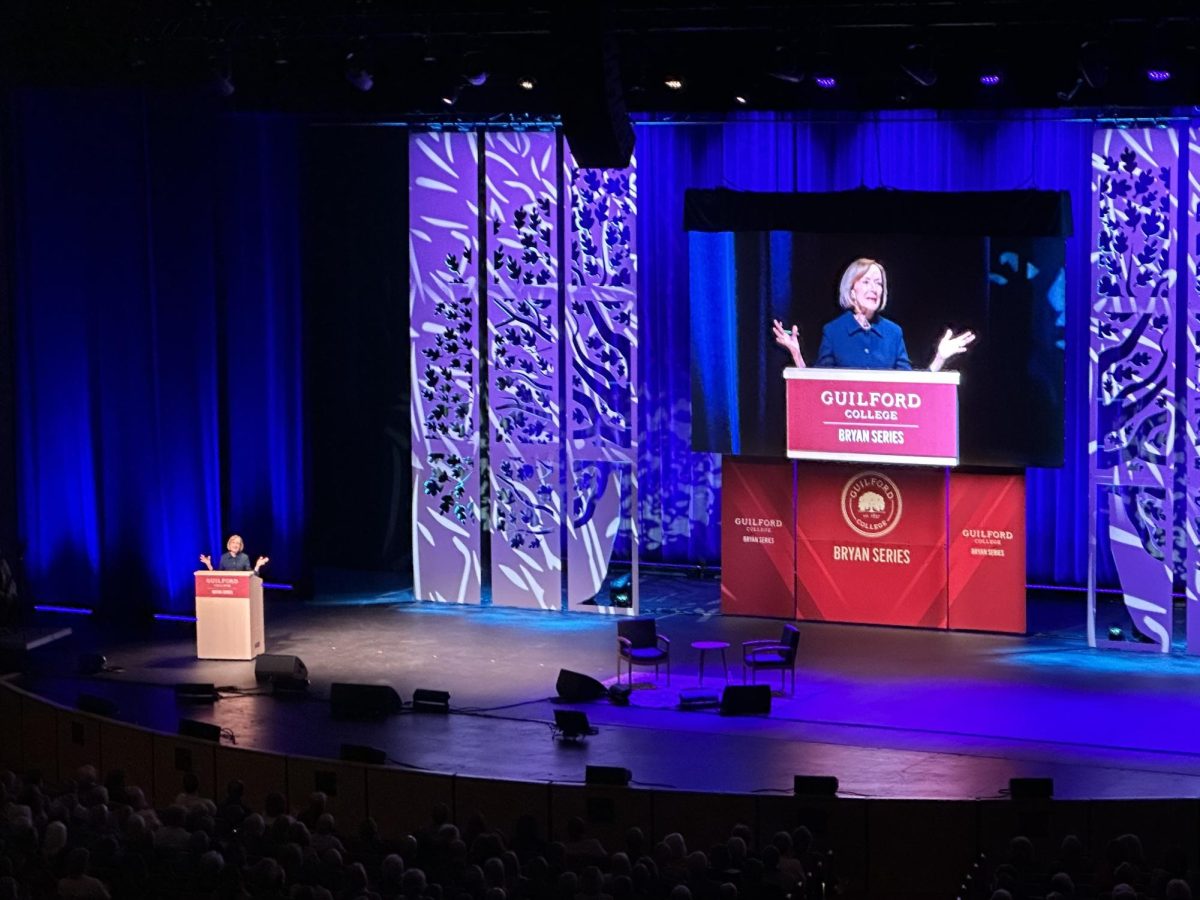


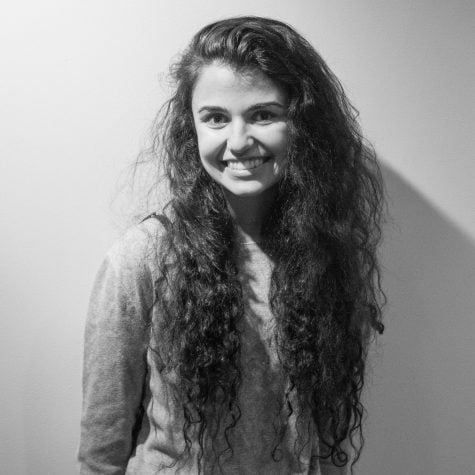
Gene • Feb 16, 2015 at 2:10 pm
>>>“(Salaita) started off by having to say, ‘I’m not an anti-Semite,’” said Jeremy Rinker, visiting assistant professor and chair of peace & conflict studies. “That kind of set the tone … and raised the tension.”
If a white guy were to start a talk with, “I’m not a racist”, followed by “criticisms” of the African-American community, then I think we know how he would ultimately be characterised. While Salaita’s tweets shouldn’t be lumped as a whole into the anti-Semitic category, it would be reasonable to argue that some of his tweets did cross the line into bigotry. Moreover, it would be accurate to state that his tweets are, by and large, sophomoric, vulgar, violent, and lacking in pertinent insights.
Salaita is free to express his views and I don’t see it as problematic that he would be invited to speak on college campuses. The reality is that he is living out his 15 minutes of fame. He isn’t a particularly accomplished academic and, quite frankly, he doesn’t come across as being particularly bright. He is in a field where the barrier to entry is low—a B.A. and a pulse—and he’s basically a mindless activist masquerading as an intellectual.
He is likely to receive a settlement from U of I, but very unlikely to win in his attempt to take a tenure track position there. Thereafter, he will likely not be employable in academia in the US. He could probably obtain a teaching position overseas (e.g., Australia or the Middle East), but if he stays int he US his best prospects are likely as a Starbucks barrista; he really isn’t qualified for much else.